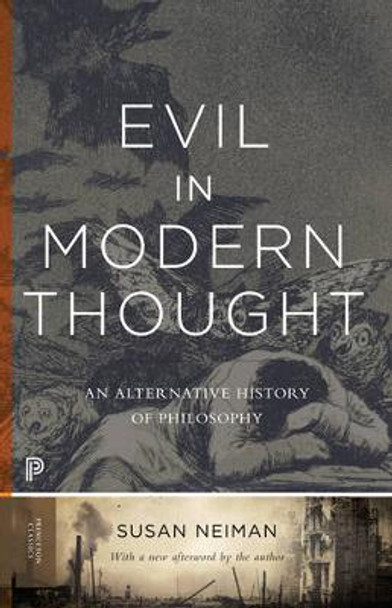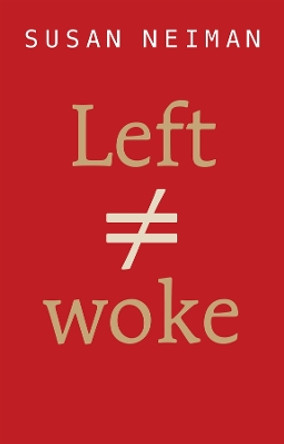Description
About the Author
Susan Neiman is director of the Einstein Forum in Potsdam. Her books include Why Grow Up? and Moral Clarity: A Guide for Grown-Up Idealists (Princeton).
Reviews
Winner of the 2002 Award for Best Professional/Scholarly Book in Philosophy, Association of American Publishers Winner of the 2003 Award for Excellence in the Study of Religion, American Academy of Religion One of Choice's Outstanding Academic Titles for 2003 "Evil has become the subject of one book after another, but [this] is one book unlike any other--by a philosopher unlike any other."--Bill Moyers, NOW "Scintillating-- a very rare thing in a philosopher."--Jonathan Ree, Times Literary Supplement "Provocative and profound."--Damon Linker, The Wall Street Journal "The American philosopher Susan Neiman has written the book for this world-political hour."--Neue Zuricher Zeitung "A brilliant new book... No summary can convey the intellectual firepower of Neiman's book. Within her field of interest, she seems not only to have read everything but to have understood it at the deepest level."--William C. Placher, Christian Century "Eloquent... [Neiman argues that] evil is not just an ethical violation, it disrupts and challenges our interpretation of the world."--Edward Rothstein, The New York Times "Neiman follows the argument like a sleuth, and, indeed, her book is a kind of thriller: What is it that menaces us? Will we find what evil is? And how may we escape it? The path leads from a God found absent past a Nature that's indifferent till it fetches up at the house of a man himself... Neiman leads the reader through a careful analysis of the relation of intention, act, and consequence to kinds of useful knowledge and degrees of awareness."--William H. Gass, Harper's Magazine "This great work...looks into these abysses with astonishing fearlessness."--Die Zeit "An erudite and compelling intellectual treatise that is profoundly interesting, often witty, and constructed without resorting to jargon or obfuscation... In reorienting the history of philosophy, she has made it come alive... This is a fine, even elegant book."--Choice "This is an accessible work of philosophy in the best sense, sharply focused on matters of vital human concern and free of the domain tics that mar even allegedly popular works by Anglo-American philosophers."--Mark Lilla, The New York Review of Books "Clear, elegant and inviting...suddenly, (philosophy) is again a matter of life and death."--Die Welt "We badly need alternative histories of philosophy. The story told (by me, among others) cries out for supplementation... Neiman's snazzy prose makes this book a pleasure to read, as well as an immensely welcome change from the sort of history of philosophy to which we have become accustomed."--Richard Rorty, Common Knowledge "A deeply moving and scholarly book that will interest many general readers."--Library Journal "Neiman's book is a welcome contribution to a philosophical conversation too long neglected."--Barry Allen, Toronto Globe and Mail "Neiman argues that when we ask why the world is the way it is, rather than the way it ought to be, that's the same as thinking about evil... If there is only a single standard of good behavior, then no matter how honestly we believe in our causes--in democracy, for instance, as opposed to tyranny or religious totalitarianism--we are never allowed to stop worrying about our own morality when we march forth to defend them."--Judith Shulevitz, New York Times Book Review "Neiman argues that, confronted with the enormity of the Holocaust, 20th-century thinkers found new grounds to conclude that what we call evil reflects nothing so much as the unintelligibility of the world... [Her] conclusion is that we should neither abandon reason nor demand the impossible from it but rather rely on it as much as we can to identify the forms of suffering and acts of cruelty that we have the power to prevent, remedy or diminish."--Peter Berkowitz, Washington Post Book World "Superb... Neiman's claim to have written an alternative history is not an empty boast."--First Things "Neiman's audacity and occasionally morbid wit are a welcome addition to contemporary philosophy. If there is any hope after Auschwitz, we may find it in the fact that human minds will not stop trying to make some kind of meaning out of it."--Alan Wolfe, Books & Culture "Neiman's narrative ... sheds light not just on the writings of particular thinkers, but also on their relation to one another. And it helps us begin to understand certain facts about the modern period that current philosophers find baffling."--Thomas Hibbs, The Weekly Standard "Neiman's book is written with considerable flair, as many critics have already noted, but it possesses a far rarer and more valuable quality: moral seriousness. Her argument builds a powerful emotional force, a sense of deep inevitability... It is not often that a work of such dark conclusions has felt so hopeful and brave."--Mark Kingwell, Wilson Quarterly
Awards
Winner of AAP/Professional and Scholarly Publishing Awards: Philosophy 2003. Short-listed for Choice Magazine Outstanding Reference/Academic Book Award 2003.
Book Information
ISBN 9780691168500
Author Susan Neiman
Format Paperback
Page Count 408
Imprint Princeton University Press
Publisher Princeton University Press
Weight(grams) 425g






